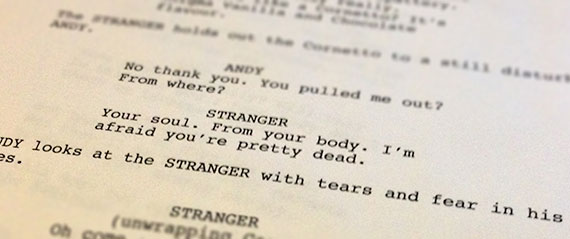Why Your Screenplay is Getting Rejected – Top Ten Screenwriting Pet Peeves
Tired of getting rejected? Susan Kouguell shares the top screenwriting pet peeves that, if avoided, will help get you from the “pass” to the “consider” pile.
MAR 11, 2020
Click to tweet this article to your friends and followers!

Let’s face it. Rejection is tough. Especially when you’ve poured your heart and soul into writing and rewriting. Maybe you’ve written your script in weeks. Or months. Or years.
The time you’ve spent writing is no measure of your talent or commitment to your craft.
There are many possible scenarios as to why your script is getting rejected by film industry folks. Your script might not be a match for a company. They’re not looking for your type of story right now. What was IN last year is OUT this year. Or, the genre is no longer what they’re seeking. Or now they’re only producing low-budget and not medium-budget projects. Or your script is not a fit for what the producer or director is seeking at that very moment.
It’s enough to give screenwriters whiplash!
We all know that sometimes it’s just a matter of luck and your script lands in the right hands at the right time. But sometimes, well, very often, if not most of the time, it’s because screenwriters are rushing to submit their scripts and they make some careless mistakes.
Here are ten universal pet peeves from film industry executives and story analysts, with whom I have interviewed for various screenwriting publications, including this one, and for my book The Savvy Screenwriter: How to Sell Your Screenplay (and Yourself) Without Selling Out! This list is in no particular order – however I do admit, as a screenplay consultant and professor, I do share all these pet peeves with my colleagues.
1. Incorrect industry formatting demonstrates that the screenwriter is an amateur, and is not respecting the reader’s time.
2. Inclusion of camera angles. Directors do not want to be told how to shoot their movie.
3. Too many genres in one script, or the screenwriter doesn’t know what the genre really is, or doesn’t understand the conventions of the genre.
4. Action paragraphs that read like a novel and/or telegraph what’s about to be revealed in dialogue.
5. Dialogue that contains heavy-handed exposition and/or over-explains information about the back-story.
6. Characters who don’t have distinct personalities and are (unintentionally) interchangeable or don’t serve a purpose in the plot.
7. Lack of a solid structure; this includes rambling, unnecessary scenes and uneven pacing.
8. The inclusion of so many plots and/or subplots that it’s not only impossible to figure out what the story is really about, but it’s obvious the screenwriter doesn’t know or trust the actual plot.
9. Overuse and/or unnecessary usage of voiceovers, dream sequences, and flashbacks. This is a red flag for story analysts.
10. Sloppiness! Typos, grammatical errors, and missing pages. Proofread! Better yet, have someone else proofread your script.
Final words of advice: Follow these tips so it’s not just a matter of luck, but a matter of taking your time and submitting your best work.






